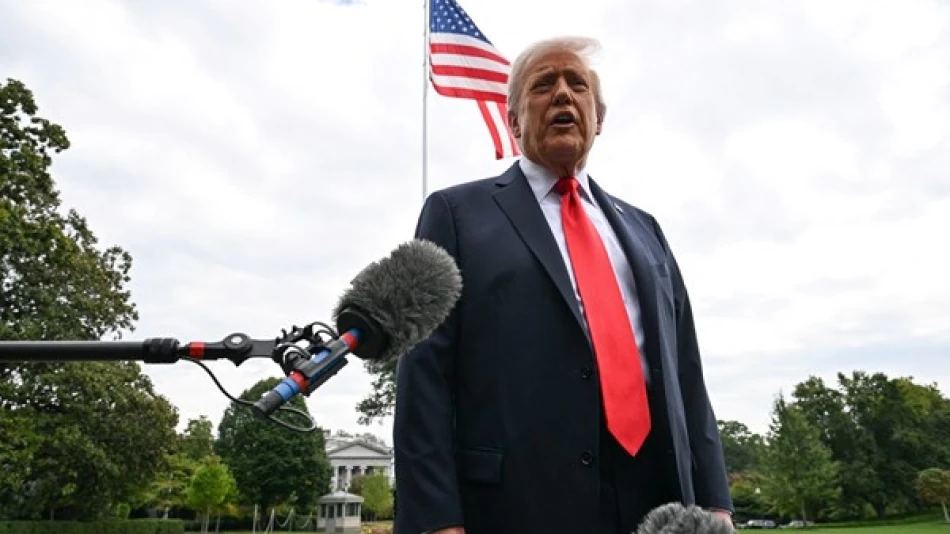
Trump Threatens Sanctions on Russia: Geopolitical Tensions Escalate
Trump Signals Willingness to Escalate Russia Sanctions as Ukraine Diplomacy Stalls
President Donald Trump announced Sunday he is prepared to impose new sanctions on Russia, marking a potential shift toward harder economic pressure as his diplomatic efforts to resolve the Ukraine conflict appear to face obstacles. The statement comes months after Trump's direct meeting with Vladimir Putin failed to produce a breakthrough in ending the war that has raged since February 2022.
Brief but Significant White House Declaration
When asked by reporters at the White House whether he was ready to impose fresh sanctions on Russia, Trump responded with a simple "Yes, I am ready," offering no additional details about the scope, timing, or specific targets of potential measures. The brevity of his response suggests the administration may still be weighing options or using the threat as diplomatic leverage.
Diplomatic Efforts Hit Roadblocks
Since returning to the White House in January 2025, Trump has prioritized finding a negotiated solution to end the Ukraine crisis. His approach represented a departure from the previous administration's strategy, emphasizing direct engagement with Moscow rather than solely supporting Ukraine through military aid and alliance coordination.
The Alaska Summit That Didn't Deliver
Trump's August meeting with Putin in Alaska was seen as a high-stakes gambit to leverage his self-proclaimed dealmaking skills on the international stage. However, the fact that he is now threatening sanctions suggests that summit failed to produce the quick resolution Trump likely anticipated. The Alaska venue itself was symbolically chosen as neutral ground between the two powers, but the meeting's apparent lack of concrete results may have forced Trump to reconsider his approach.
Economic Pressure as Last Resort
Trump's willingness to impose additional sanctions represents a significant tactical shift. Throughout his previous presidency and early campaign rhetoric, he often criticized extensive sanctions regimes as ineffective and economically damaging to American interests. His current position suggests either a recognition that diplomatic outreach alone won't move Putin, or pressure from Congress and allies to demonstrate tougher action.
Market and Geopolitical Implications
New U.S. sanctions on Russia would likely target sectors already under pressure, potentially including energy exports, banking, or technology transfers. Energy markets remain particularly sensitive to any escalation, as Russia continues to be a major global oil and gas supplier despite existing restrictions. European allies, who have gradually reduced Russian energy dependence since 2022, would likely support additional measures if they don't disrupt alternative supply chains they've established.
For investors, Trump's sanctions threat signals that the Ukraine conflict may drag on longer than markets had hoped following his election victory. Defense contractors and alternative energy companies could benefit from prolonged instability, while sectors exposed to Russian commodities may face continued volatility.
Broader Strategic Context
Trump's position reflects the limited options available to any U.S. president dealing with the Ukraine crisis. Unlike previous conflicts where American military intervention was considered, direct confrontation with nuclear-armed Russia remains off the table. This leaves economic warfare and proxy support as the primary tools of pressure.
The timing also suggests Trump may be responding to developments on the ground in Ukraine or intelligence assessments indicating Russian intransigence. His willingness to threaten sanctions, despite his historical skepticism of such measures, indicates the diplomatic track may be exhausted—at least for now.
Most Viewed News

 Layla Al Mansoori
Layla Al Mansoori






